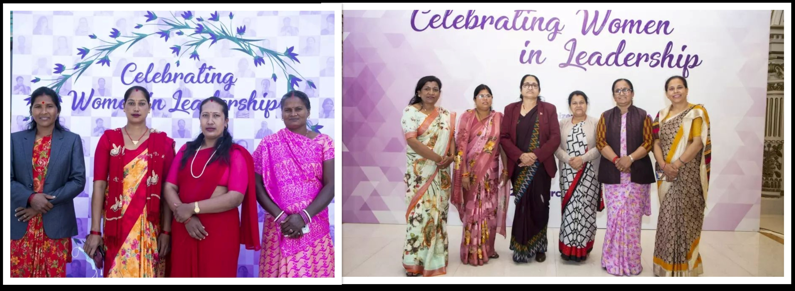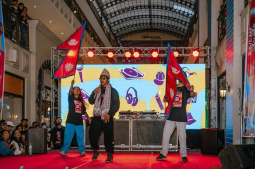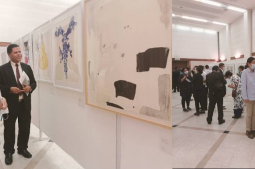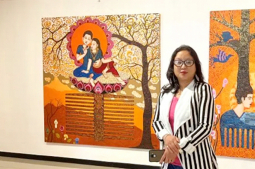'Ramailo Games' promotes local content and family games
1 year ago
Sr. correspondent at Republica.

Photo Credit: Voices of Women Media
KATHMANDU
Nepal's 2015 constitution established a three-tier federal framework, with federal, provincial, and local level units operating independently. In 2017, the first local elections in the country in two decades were formulated.
According to the provision in the Local Election Act, 2017 Chapter 4, Article 17 (4), it required 50 percent of women to run for Mayor/Chairperson or Deputy Mayor/Vice-Chairperson. This provision did secure the space for women in leadership positions which resulted in 91 percent of the Deputy Mayor/Vice Chairperson in Nepal being women.
Nepal got 7 women mayors, 276 women deputy mayors, 11 women chairpersons, and 424 women vice-chairpersons making a total of 718 in the top two positions in local bodies. On the other hand, this result also shows political parties' ability to retain patriarchal practices.
Nevertheless, their presence in power, their contributions, and their working process, even having various challenges and overcoming them, during these five years; are undoubtedly a source of inspiration for the upcoming women leaders.
The quota system, though there is only a 33 percent representation of women, has worked as the catalyst for change. This showed that women too are capable of leading positions and can bring a positive impact on people for a better society.
This very positive aspect has been documented in the form of a booklet “Women in Leadership: Mayors & Rural Municipal Chairpersons of Nepal” which has been published by Voices of Women Media (VOW), highlighting the achievements of 18 women leaders who are successfully elected as Mayor/Chairperson.
During the launch of the book recently in Kathmandu, Mayors and Rural Municipal Chairpersons were invited to the program organized by VOW and a panel discussion session was held letting the audience know about their achievements, challenges, and more.
Explaining her experience, during her tenure as a Mayor, Seema Kumari Chhetri, Mayor of Putalibazaar Municipality, Syangja District shared, “There are both opportunities and challenges being a woman. I would get questioned about being a female and a mayor. I have been able to complete 80 percent of the work which I found to be successful. There is a need for trust from our own parties to be able to get women in top positions in the next election. However, considering the amount of work done in this tenure, not only me but other women leaders have done a remarkable job.”
Another Mayor Rina Kumari Shah of Maulapur Municipality, Rautahat District, also the only woman Mayor representing the Madeshi community explained how other women in the community got the encouragement to do something outside their homes. She shared, “I feel proud to present myself as the only woman as Mayor from Madhesi community where the country has altogether seven women Mayors in total. During my tenure, I initiated the construction of a bus park that contributed to the systematized functionality of the local transportation system, built homes for the Dalit communities, and a well-equipped hospital for Maulapur residents. These accomplishments have given me immense satisfaction and energy to further my engagements.” She added that she has appointed 80 percent of women for different projects under her leadership.
Likewise, in a documentary under the Women's Programme, led by Voice of Women Media in collaboration with The Asia Foundation, Sita BK, ward member of Waling Municipality, Ward No. 1 shed light on women’s change in perception that women are only capable of being homemakers. "Until yesterday, our sisters stayed in the back not being confident in themselves or believing they knew something. But after we came to leadership, they were given legal awareness and capacity building training and they are now eager to move forward. It makes me really happy. Every tole is notified, and they are encouraged to share their plans. Our sisters are more enthusiastic than ever about doing something. They request us to bring awareness and empowerment programs for them. Moreover, our sisters from all 14 wards have made identical pleas for empowerment. I proposed that the women's representatives receive capacity-building training, and we also completed the training," shared BK.
Moreover, these women in positions are creating great examples of what they can do, if given leadership positions. According to experts, given the opportunity, municipalities can generate resources on their own. Proving this saying Laxmi Devi Pandey, Chairperson of Hupsekot Rural Municipality, Nawalparasi District, under her leadership, the municipality has run grants and pension programs for farmers to encourage commercial agriculture. The booklet mentions that such grants have been introduced to encourage local youths and returnee migrants to take up farming. A certain part of the municipality was also declared as Rhododendron Conservation Zone to encourage eco-tourism.
Similarly, Chhetri, Mayor of Putalibazaar Municipality, Syangja District established a garbage management clearing center that produces 50 cubic meters of biogas which is used to produce compost fertilizer. As mentioned in the booklet, she regards this as the most significant accomplishment of her tenure. Other initiatives of Mayor Chhetri include an under-construction slaughterhouse with modern amenities and biogas production from public toilets for which the municipality has provided a compost bucket to each of the households. A community agriculture program has also been started to make the farmers self-reliant.
Moreover, even being in the difficult geographical terrain, Mayor Kantika Sejuwal of Chandannath Municipality, Jumla district accomplished many development-related projects. That includes an extension of Jumla’s connecting road with Rara Lake in Mugu District, two hydropower projects, nine health centers, a birthing center, drinking water, three model schools, and provision of seed capital for women in agriculture among others. In her tenure, training with an objective to empower women has been conducted i.e., Dhaka weaving, growing apple orchards. Additionally, needs assessment had been conducted prior to imparting such skill training for women according to the booklet.
Along with the developmental sector, these women leaders became exemplary in being fair in budget disbursement and free of corruption. Office of Auditor General had recognized Kamal rural municipality as one of the four municipalities with the fairest budget disbursement in the first/second year of her tenure; the budget was prepared under Menuka Kafle’s leadership who is the chairperson of Kamal Rural Municipality, Jhapa District. Then, Sita Kumari Poudel (Adhikari) Chairperson of Kalika Rural Municipality, Rasuwa District during her electoral campaign for chairperson, she had vowed that the budget of the rural municipality will be free of corruption. Since then, she is committed to implementing her promise.
This year, the local level elections scheduled for May 13 constitute a total of 17,733,723 voters that include 8,992,010 men and 8,741,530 women, and 183 others, according to the Election Commission. They will be casting their ballots to elect leaders to 753 local level units: six metropolises, 11 sub-metropolises, 276 municipalities, and 460 rural municipalities.
The results that this handful of women leaders have accomplished show that upon being given the opportunity, they are capable of decision making and good governance who are willing to go against the stereotypical belief that women should stay mum and stay behind the four walls of their home.

- by Republica

- by Samiksha Shrestha and Manawi Shah


Leave A Comment